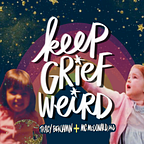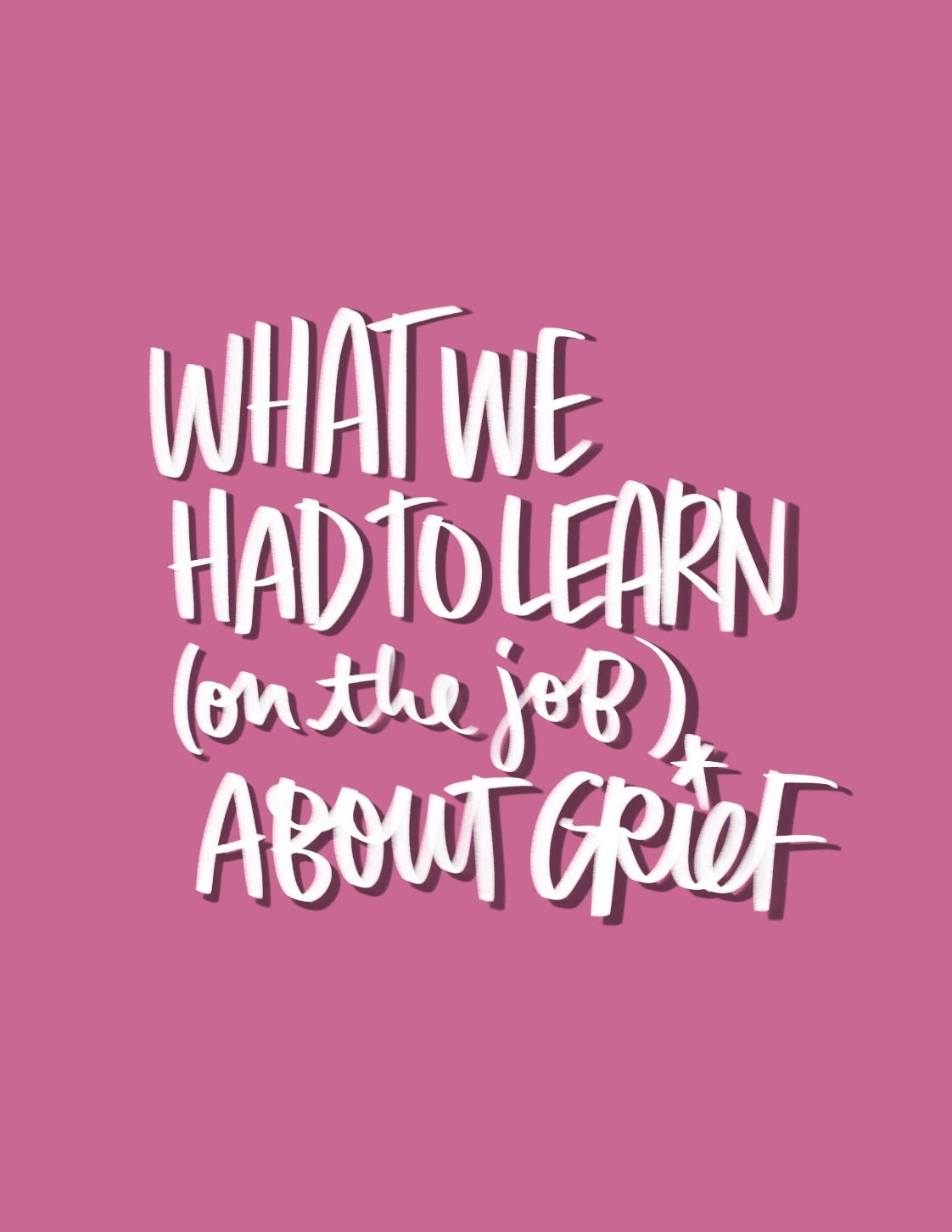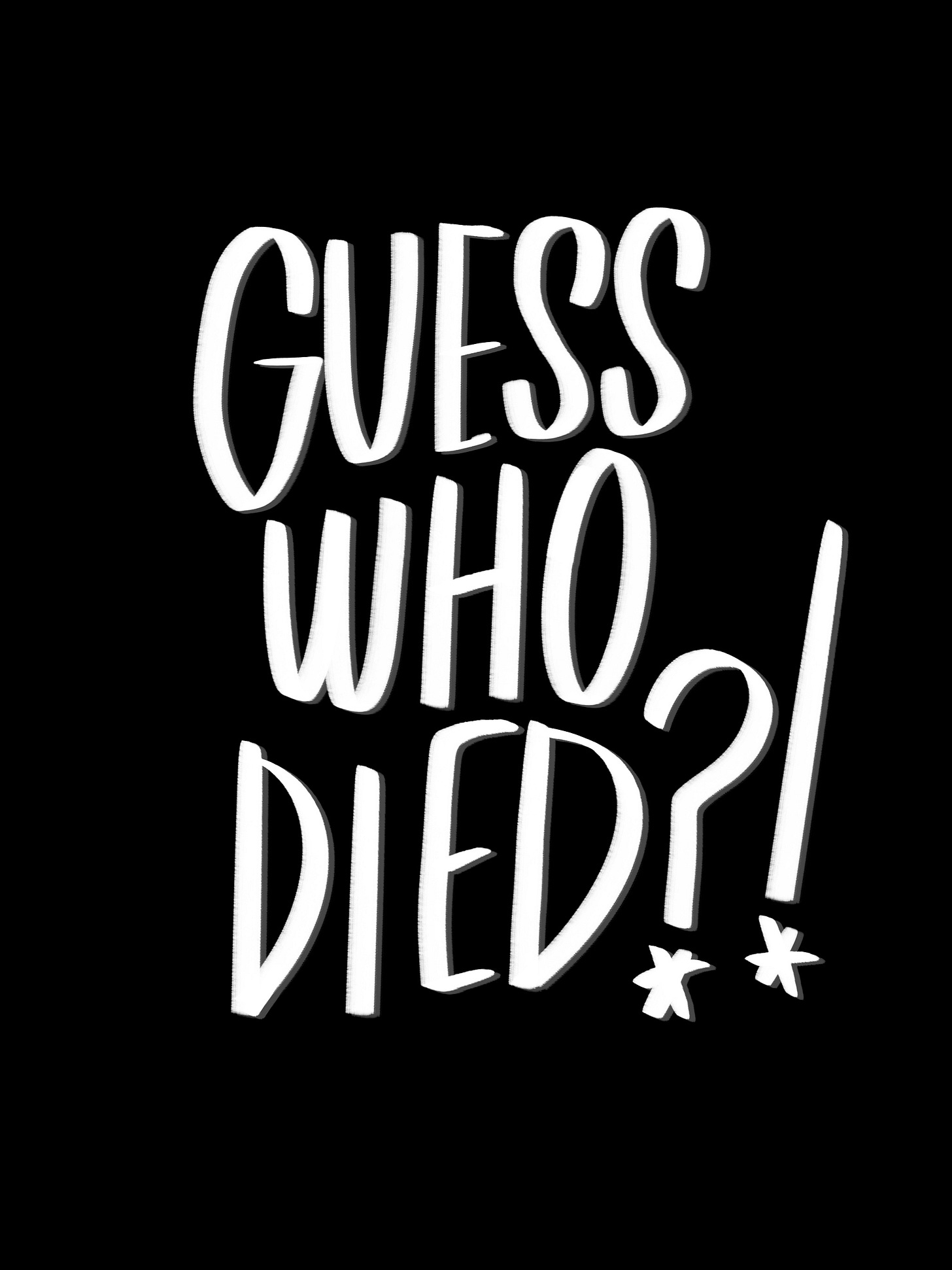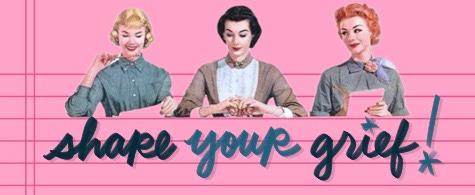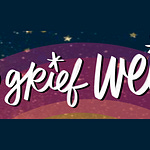MC here: One of my earliest grief memories was right after my Dad’s funeral. Like, that afternoon. So many people came to the house to see us, and I was standing in the kitchen when someone came to the door. This person was a friend of my parents, and I’m sure she was very well meaning, but we had the following conversation:
Her: How are you? (grief head tilt)
Me: I’m ok.
Her: No you’re not. You just think you are. You’re in shock. In six months you’re going to feel so much worse.
Me: (stands there blinking and silent)
Seriously? Listen, I’m a firm believer that there is nothing that you can possible say in a situation like this, that we are all just doing our best and probably almost always saying the wrong thing, and that it’s the showing up that matters, not the words you string together. But I think we can all probably agree that telling someone whose father just died that it’s only going to get worse is not advisable. Right? Let’s go ahead and decide that.
As grievers who have a combined quarter of a decade of experience in grieving, we wanted to share what we wish people had told us in our earlier stages of grief. We could probably come up with ginormous lists of these, but for this episode we each shared three.
Here’s what we came up with:
MC #1: This will not take you out. You don’t need to go to war with your emotions like they’re trying to kill you. They’re not and they won’t, I promise, so just sit down wherever you are and cry for a minute.
Tracy #1: When someone dies, a part of you dies as well. You might lose your foundation, your values, your ability to take care of people, and to cheerlead for the people in your life. You’ll have to figure out how to do all of that for yourself and it’s tough.
MC #2: Whatever you are feeling is OK. You don’t need to grieve in any particular way or order. You can’t make a mistake here. If you’re sad? That’s ok. Miserable? That’s ok. Anxious? Oh look, still ok. Happy and confused about it? Yep. Also ok. No need to compare or interrogate your emotions.
Tracy #2: Grief doesn’t just apply to death, it applies to any kind of loss. We grieve often and for so many things. An old life, an old career, a lost friend, possibilities that you didn’t take. Understanding that can help you understand yourself and have compassion for your process.
MC #3: Your relationship with grief is going to change radically over time. It never goes away, but that does not mean you are always going to feel bad. The grief for the person you lose is like a new relationship. When they die that relationship begins, and it sustains. That’s kind of beautiful.
Tracy #3: Loss can sometimes isolate you from other people because part of the identity change also means that you are less tolerant of people who haven’t experienced loss. I didn’t know how that would change how I viewed or connected with other people.
What do you wish people had told you about grief? Or do you have stories about things that you wish people hadn’t told you?
Tracy here! Something weird I miss? Talking to my Mom after she did her weekly obituary readings from the newspaper. She inadvertently made me think about death a lot.
On this episode we talk a bit about anger and how it gets trapped in the body. I have been on a fitness journey for the past two years and it’s helped me process a lot of emotions and grief as I try to make better choices for myself! You can read a little more about my workout routine here!
Also: you have our permission to SCREAM. Get that anger/rage out. Practice! It might come in handy one day.
We would love to hear from you! How’s your grief? Message us here or at keepgriefweird@gmail.com, and tag us on Instagram @keepgriefweird and use our hashtag- #keepgriefweird to share your weird griefy things!


